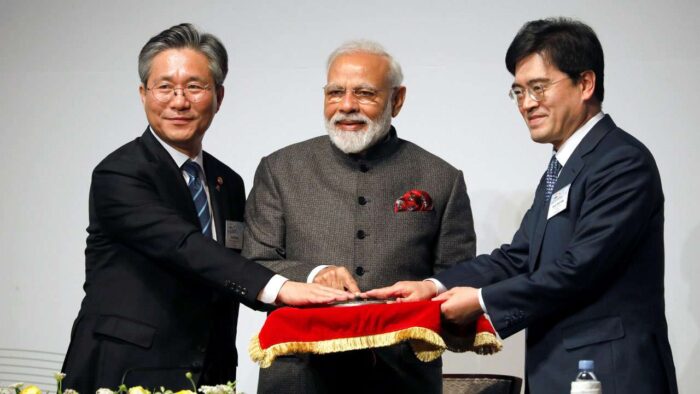The K-wave, or the Korean wave, that started in 1990s, has continuously gained momentum, with a lot of us falling in love with their music and dramas. What started as regional development, became a global phenomenon with the power of the internet and social media platforms. And now, Korea is heavily investing in commerce in the country, eyeing the immense potential, our country offers. Let’s look at the reasons, how both countries are benefitting from each other.

1. Large market
Korea is facing a dwindling population and also a fair amount of their population is aging, thereby prompting companies to reach out to other markets. Now, India offers something for everyone. With a population of almost 1.4 billion and more than 40,000 startups, India offers a huge market size. For every investor, there are enough markets to be explored, as people of all economic backgrounds reside here. Be it luxury products or be it FMCG goods, Korean company products will find customers for almost everything.
2. Advantages Offered by India
With a large English-speaking population that is qualified and specialized in various fields, Indian manpower is rich and vast. Also, the factors of production are available at lower costs, coupled with relaxed regulations and trade agreements. All of this goes a long way in ensuring that higher profits are reaped. Considering all of this, Korean startups are increasingly entering India for market testing.

3. Similarities In Sectors
Popular sectors for startups in Korea include edutech, fintech, foodtech, Healthtech and gaming. And same is the list of popular areas for startups in India. This is helping build potential partnerships and, considering the massive market that India offers, an increasing number of Korean startups are now entering into strategic partnerships, not just to test markets but also become profitable.
For example, the Korean confectionery giant Orion Corp. entered into a partnership with India’s processed food manufacturer Mann Ventures, thereby expanding operations in India. Also, in early March, South Korean fintech startup Balance Hero raised around $10 million in debt funding led by the India-based non-banking financial company (NBFC) Northern Arc.

4. Similarities Between Countries
Korea has good capital power, while India excels at manpower. Korean startups want to bring their technology into various markets and India offers a large one, along with scalability. Both the countries have a large population that are tech-savvy and also those who can make use of technology to its maximum potential.
With so much to offer, India is becoming a hub for Korean businesses to flourish in foreign markets. Also, India’s proximity to other nations are also helping businesses. Plus, programs like India-Korea startup hub are providing valuable impetus to startups that want to invest in the country. The hub provides collaborations between startups, investors, incubators and budding entrepreneurs in both countries.
















